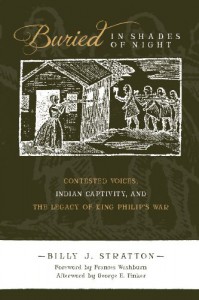Reader! Reader!
Literary fiction, classics, dystopian, history, memoir, prize winners, and of course the 1001 books. You really might catch me reading anything!
Buried in Shades of Night

So I got this book from my library after I recently read Flight of the Sparrow by Amy Belding Brown. While it was interesting and very readable, Brown went crazy modernizing real people. I was curious to know where scholarship actually stands on some of these issues.
—————
This is the first jargon-filled academic history I have read in years. In many ways, it made me not miss grad school--but boy do I wish I had someone to hash this out with right now. And to discuss the overused piece of jargon "rhizomatic".
So this book looks at Rowlandson's narrative--and whether it was really written by Mary Rowlandson, or if it was actually transcribed/written by Increase Mather. But what his actual theses are (and I believe there is more than one in here, which is where this book goes astray):
• Captivity narratives were part of the war (his word) to dispossess natives of their lands by making the general public on both sides of the Atlantic scared.
• Even today academic historians fully use these narratives as historical ethnographic documents—even though they represent just one side of the war. I was in history grad school 20 years ago, and we discussed this then—in fact, we discussed this in my undergrad years which were over 25 years ago, so I don't think Stratton really needs to try to make this argument. One of his examples isn't even an academic historian.
• Native voices must be found (true!). He doesn't offer any ways of doing this, which is frustrating, because I would love to read any such sources, as I like reading subaltern sources to see another side. He only briefly mentions one letter, but does not say where it can be found (it may well be in a courthouse or library, unpublished).
Mostly this book struck me as angry. While he argues that there is more than one side to any history (true!) and that they should all be studied, he actually only wants to study the Native side here because he deems it the right one. The current historians he complains about all seem to be women (one I cannot tell based on the first name), when insulting male historians he goes back to men publishing in the 1960s and earlier—which I don't think anyone would consider up to date, I have actually ever heard of any of them, despite being an American history major and grad student over 20 years ago (they were out of fashion even then!). Meanwhile, the conclusion (by another author) announces that white historians are of the Euro settler class and simply cannot write any history having to do with native subjects. Period.
Meanwhile, the text of this book is only 149 pages (notes and sources add more). So I very much feel like he tried to argue too many things, rather than focus on just one thesis and fully examine it.
And Stratton would hate Brown's novel. He would not want to see Rowlandson be nice, at all, nor would he want her to seem sympathetic. However, he agrees that Mather wrote or transcribed and edited the actually narrative.
But yeah. I don't miss grad school.
 1
1




